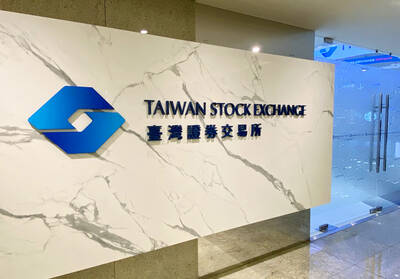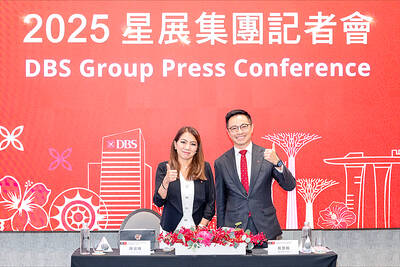Staff reporter, in KAOHSIUNG
State-run CPC Corp, Taiwan (CPC, 中油) on Friday said an ongoing capacity expansion project at its refinery facilities in Kaohsiung’s Dalin Township (大林), which cost more than NT$20 billion (US$659.96 million), would be finished by the end of this month.
The three new plants at the refinery would produce lower sulfur refined products, which would ensure the firm’s competitiveness, refinery deputy manager Chen Cheng-hsi (陳正喜) said.
The new plants are expected to boost the refinery’s capacity from 300,000 barrels per day to 350,000 barrels, while helping the company to produce more “green” products, Chen told a news conference in Kaohsiung.
Established in 1969, the 500-hectare Dalin refinery serves as a major oil supply and transfer hub for the nation’s petrochemical products.
In a bid to raise energy self-sufficiency, CPC said it has been investing in research and development on hydrogen fuel cells for several years.
“We are trying to use hydrogen to generate electricity for a naphtha cracker in Kaohsiung’s Linyuan District (林園),” said Yen Tzu-hsiang (顏子翔), a researcher at CPC’s Green Technology Research Institute in Kaohsiung.
CPC said it is exploring business potential in this cutting-edge technology, as it generates high-purity hydrogen during refining processes.
Global carmakers have used the technology to build fuel-cell electric vehicles, Yen said.
Japan plans to build hydrogen fuel infrastructure ahead of the 2020 Olympic Games in Tokyo, while several Japanese carmakers — including Toyota Motor Corp and Honda Motor Co — have launched hydrogen fuel cell-powered models, he said.
CPC said it would begin a trial run of its hydrogen fuel cells next year with help from a low-temperature fuel cell system provided by the Hsinchu-based Industrial Technology Research Institute (工研院).
As part of its long-term strategy to develop sustainable technologies, CPC last week issued NT$2.8 billion in “green” bonds, which have a maturity period of 10 years with a fixed coupon rate of 1.16 percent, to replenish operational capital for improving natural gas infrastructure.
The company plans to use the proceeds to construct its third liquefied natural gas terminal in Taoyuan’s Guanyin District (觀音) and enlarge its natural gas plant in Taichung, CPC said.
The company said it is also considering building a plant on 9 hectares of land in Kaohsiung through Taiwan-Japan Oxo Chemical Industries Inc (曄揚), its joint venture with Japanese petrochemical maker KH Neochem Co Ltd.
The joint venture would build a plant to produce isononyl alcohol, which can be used to manufacture high-performance plasticizers, CPC said.
However, a timetable for the construction has not been finalized, as the project must still be approved by the Kaohsiung City Government, CPC said.

Taiwan Semiconductor Manufacturing Co (TSMC, 台積電) secured a record 70.2 percent share of the global foundry business in the second quarter, up from 67.6 percent the previous quarter, and continued widening its lead over second-placed Samsung Electronics Co, TrendForce Corp (集邦科技) said on Monday. TSMC posted US$30.24 billion in sales in the April-to-June period, up 18.5 percent from the previous quarter, driven by major smartphone customers entering their ramp-up cycle and robust demand for artificial intelligence chips, laptops and PCs, which boosted wafer shipments and average selling prices, TrendForce said in a report. Samsung’s sales also grew in the second quarter, up

LIMITED IMPACT: Investor confidence was likely sustained by its relatively small exposure to the Chinese market, as only less advanced chips are made in Nanjing Taiwan Semiconductor Manufacturing Co (TSMC, 台積電) saw its stock price close steady yesterday in a sign that the loss of the validated end user (VEU) status for its Nanjing, China, fab should have a mild impact on the world’s biggest contract chipmaker financially and technologically. Media reports about the waiver loss sent TSMC down 1.29 percent during the early trading session yesterday, but the stock soon regained strength and ended at NT$1,160, unchanged from Tuesday. Investors’ confidence in TSMC was likely built on its relatively small exposure to the Chinese market, as Chinese customers contributed about 9 percent to TSMC’s revenue last

Taiwan and Japan will kick off a series of cross border listings of exchange-traded funds (ETFs) this month, a milestone for the internationalization of the local ETF market, the Taiwan Stock Exchange (TWSE) said Wednesday. In a statement, the TWSE said the cross border ETF listings between Taiwan and Japan are expected to boost the local capital market’s visibility internationally and serve as a key for Taiwan becoming an asset management hub in the region. An ETF, a pooled investment security that is traded like an individual stock, can be tracked from the price of a single stock to a large and

Despite global geopolitical uncertainties and macroeconomic volatility, DBS Bank Taiwan (星展台灣) yesterday reported that its first-half revenue rose 10 percent year-on-year to a record NT$16.5 billion (US$537.8 million), while net profit surged 65 percent to an unprecedented NT$4.4 billion. The nation’s largest foreign bank made the announcement on the second anniversary of its integration with Citibank Taiwan Ltd’s (花旗台灣) consumer banking business. “Taiwan is a key market for DBS. Over the years, we have consistently demonstrated our commitment to deepening our presence in Taiwan, not only via continued investment to support franchise growth, but also through a series of bolt-on acquisitions,” DBS